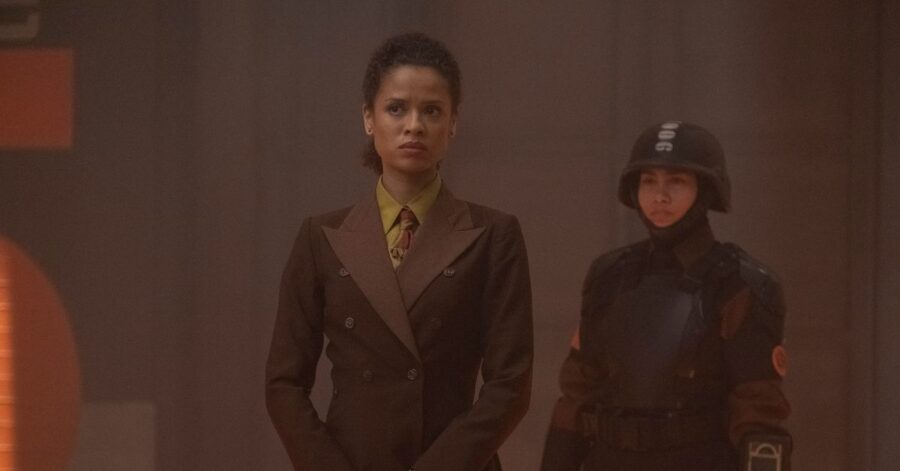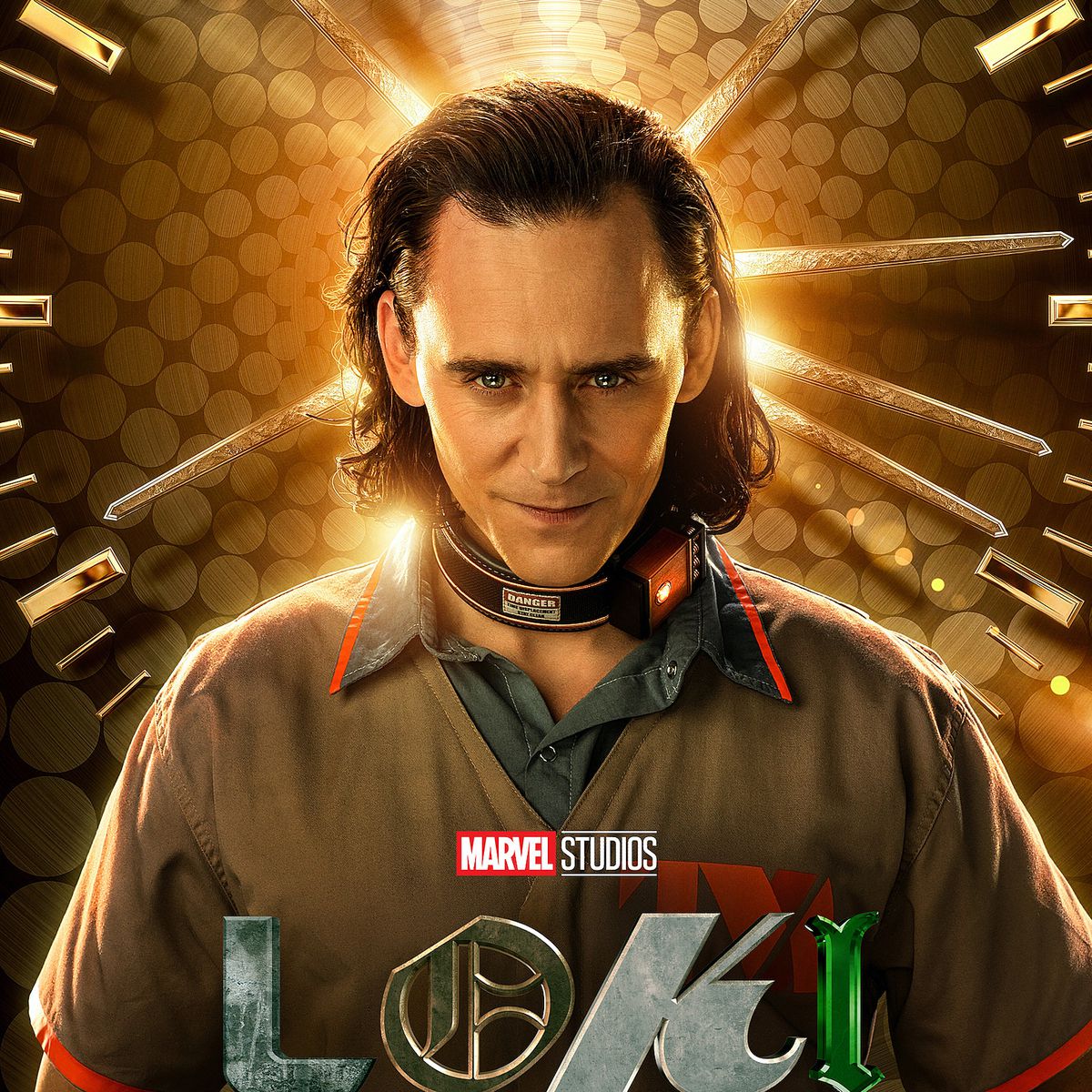The Disney Plus series Loki launched by sending everybody’s favorite endlessly double-dealing Asgardian prince off to face a despotic time-travel regulating bureaucracy known as the TVA. When the credits for episode 1, “Glorious Purpose,” revealed that the TVA judge calling the shots on Loki’s potential execution was named Ravonna Renslayer, longtime Marvel Comics readers felt they were in the know before anyone else. “Ravonna Renslayer” seemed like an oddly specific, operatic name for what appeared to be a minor role. But that’s because Ravonna is an established Marvel character, with a long and complicated comics history as a time-displaced villain.
For some fans, her presence suggested that Loki is out to bring in some specific comics plotlines and characters — in particular her estranged husband, Kang the Conquerer, a time-traveling menace on his own. But Gugu Mbatha-Raw, who plays Ravonna on the show, didn’t turn to deeper-cut comics lore to help her decode Loki.
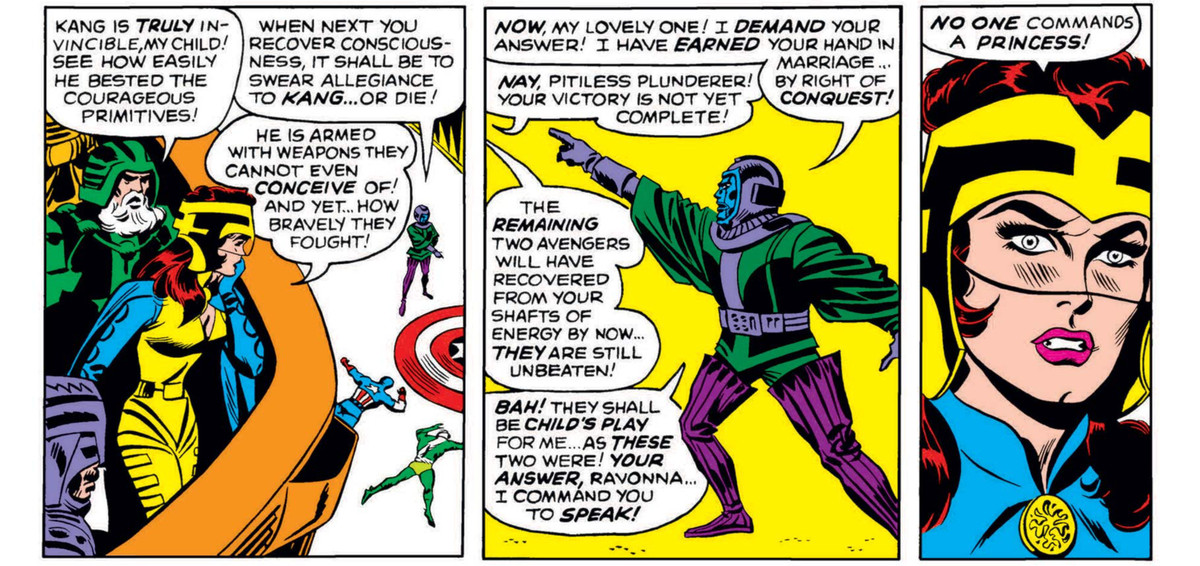
“I took a look at it,” she tells Polygon, “but I also knew it wasn’t the most useful information for the story we were telling in Loki. That was how [series director] Kate Herron and our producer Kevin Wright steered me. They told me not to go too deep into that stuff, because it isn’t really the part of time we’re dealing with.”
On Loki, Ravonna is in a position of power — even above her fellow TVA associates like Owen Wilson’s Mobius M. Mobius. And that was a departure for the actress.
“For me, it’s so exciting to play such an authoritative character,” she says. “I’ve not really had the opportunity to play a character with that kind of gravitas before […] And then the chance to get some action and do some of the stunt stuff we see a bit later in the show was also really appealing.”
Alternatively, in Marvel Comics, Ravonna Renslayer began editorial life as a damsel princess in Earth’s 40th century, in the pulp mold of John Carter of Mars or Flash Gordon. Falling in love with the time-traveling despot Kang, she leapt in front of a laser blast meant for him, saving his life and ending her own. But she got a new lease on continuity when a later Kang plucked her from her timeline in the final moment before her death and placed her in stasis, Mister Freeze-style, hoping to unlock a way to save her life.
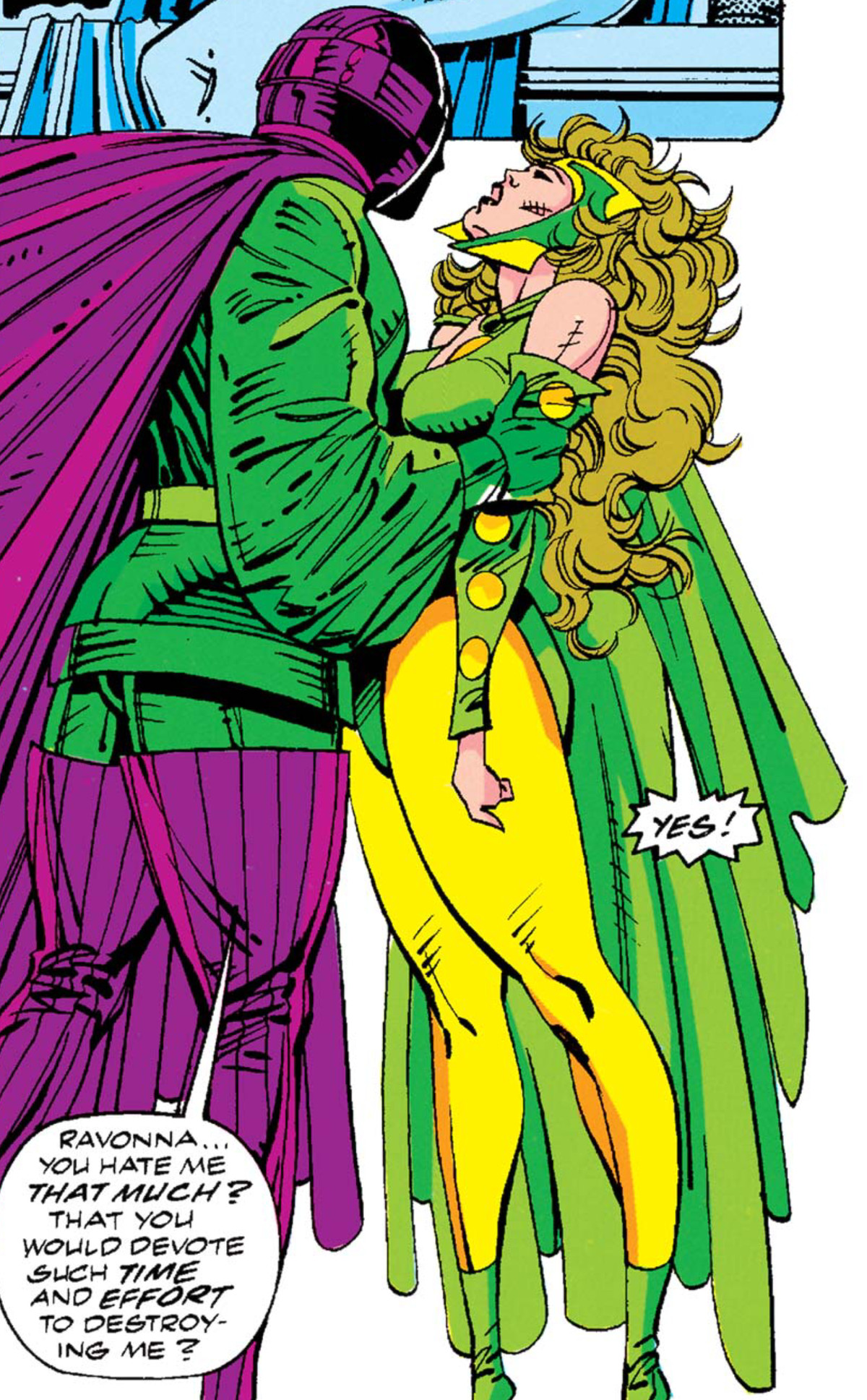
Image: Mark Gruenwald, Herb Trimpe/Marvel Comics
Following a series of events (OK, OK, Kang lost a bet with the Grandmaster where he chose the power to kill the Avengers over the power to revive Ravonna, and the Grandmaster revived Ravonna himself to let her know how bad Kang fucked up), she became a time-traveler herself, locked in an eternal love-hate battle with Kang across time.
The really juicy part of this, for deeply invested Marvel Cinematic Universe fans, is that Kang the Conqueror is heavily rumored to be the villain of Ant-Man & the Wasp: Quantumania, the upcoming third Ant-Man movie, where he’ll be played by Jonathan Majors (Lovecraft Country). Could Loki’s Ravonna be laying track for Ant-Man’s Kang?
“Who knows, maybe we get together in the future or the past or whatever. What is time, anyway, in the TVA?,” Mbatha-Raw laughs.
Focusing on an earlier version of the character than the comics ever showed gave Mbatha-Raw much more freedom to interpret the character in new ways. “Loki is more of an origin story for Renslayer,” she says. “So this predates what people know and love about her from the comics. That gives us a bit of room to do something unexpected.”
The unexpected happened in episode 3 of Loki, “Lamentis,” when Sylvie revealed that every functionary of the Time Variance Authority is a variant themselves — ripped from their own timeline, with their memory altered so they’d believe they were created whole cloth as TVA agents. And that wasn’t the end of the surprises.
[Ed. note: Spoilers ahead for episode 4 of Loki, “The Nexus Event.”]
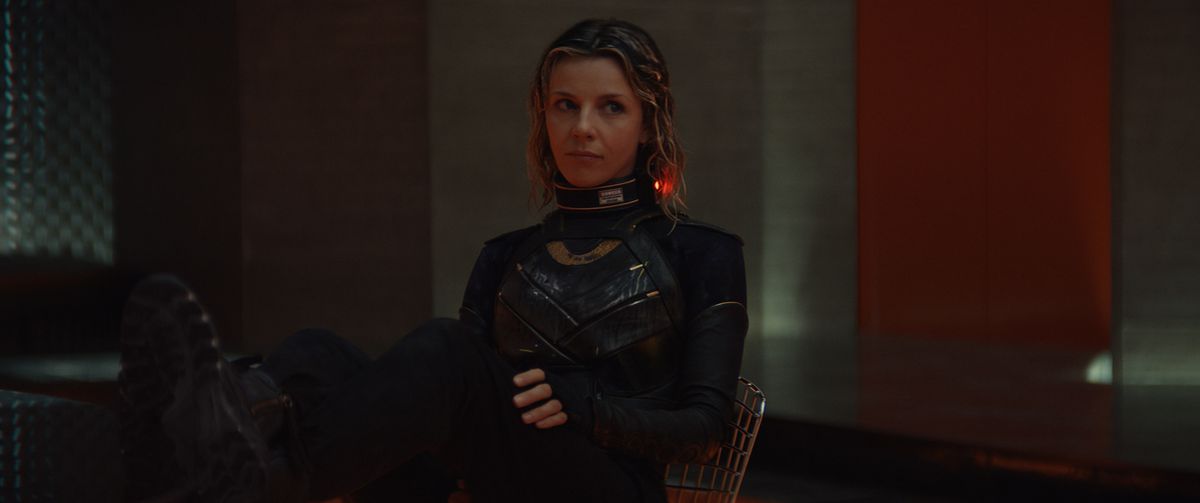
Image: Marvel Studios
Episode 4 saw Ravonna and guards locked in battle with Loki, Sylvie, and Hunter B-15 before the three Time-Keepers themselves — who turned out to be mindless robot simulacra; the temporal equivalent of Disneyland’s Hall of Presidents.
Then, just as Loki was about to tell Sylvie something that seemed very important, Ravonna reared up and pruned Loki from the timeline. (It’s OK, he turned out alright.) Did Ravonna know she’s a Variant? Did she know about the Time-Keeper deception? How much power does she really wield in the Time Variance Authority?
Mbatha-Raw couldn’t answer these questions of course (and we hadn’t even seen the episode at the time of our chat), but she did appreciate the questions the show ultimately confronts.
“When you have an antihero as your lead character, you’re asking, ‘What is good? What is evil? Is anybody wholly good, is anybody wholly evil?’” she says. “The Timekeepers and Renslayer very much adhere to this idea that things are only supposed to happen one way. [The show asks,] Is that true? Can we change or affect our destiny? Can we evolve? Can someone like Loki change? That’s a universal human question, really.”
Polygon – All
Source link
Related Post:
- Aliens: Fireteam Elite Sprays and Prays with 15 Minutes of Raw Co-Op Gameplay
- Dynasty Warriors 9: Empires Gets 11 Minutes of Raw Gameplay Showing a Smaller, Non-Open World Map
- Cruis’n Blast Switch interview with Eugene Jarvis of Raw Thrills
- Altor acquires majority stake in Raw Fury
- Destiny 2: Season Of The Lost Continues Bungie’s Recent Pivot To A More Raw, Honest Form Of Storytelling
- Farming Simulator 22 gets its first raw gameplay trailer
- Gear Store and comic books – PlayStation.Blog
- New Star Wars Comic Sees Leia And Luke Skywalker Visiting Jedi Fallen Order Planet
- Comic-Con 2024: The Owl House, Amphibia cross over and tease the future
- A Look Back At Nintendo’s Long History Of Art, Music And Game Making Software – Feature
